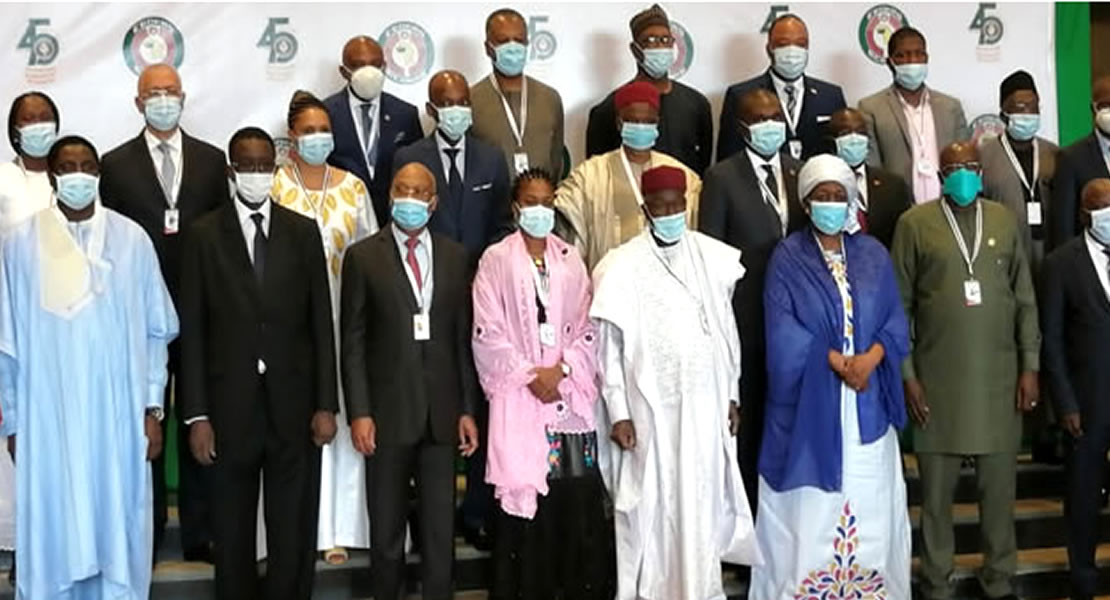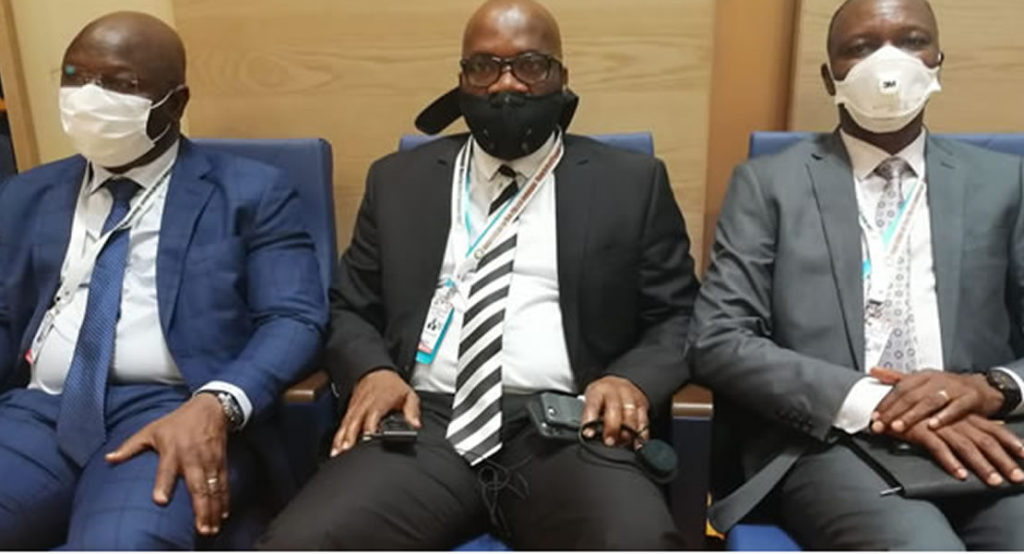
The 44th Ordinary meeting of the Economic Community of West African States (ECOWAS), Mediation and Security Council has reviewed the political and security situation in the West African sub-region at the Ministerial level.
At the meeting held in Niamey Niger, last Friday September 4, 2020, and presided over by the Chairman of the Mediation and Security Council, Kalla Ankourao, Minister of Foreign Affairs of the Republic of Niger, particular emphasis was placed on the political process in the Gambia and Guinea Bissau.
In attendance were, Speaker of ECOWAS Parliament, Rt. Honorable Sidie Mohamed Tunis, Dr. Ibn Chambas, Special Representative of the United Nations Secretary General for West Africa and the Sahel (UNOWAS) and Abdullah Bureima, President of the UEMOA Commission.
President of the ECOWAS Commission, Jean-Claude Kassi Brou, reiterated the determination of the Commission to strengthen its working relations with member states, which he believes is important in articulating the interest of the citizens of the sub region.
He further commended the strong political will of the Heads of States and Governments in finding a lasting solution to the socio-political crisis in Mali, and thanked former president Goodluck Johnathan, ECOWAS Mediator in the crisis for his commitment to have the Malian situation resolved.
Chair of the Mediation and Security Council at the Ministerial level, Kalla Ankourao, recalled the challenges Covid-I9 has brought upon the sub region coupled with the breakdown in democratic governance in Mali.
In his address, he further noted that the electoral challenges ahead, indicated that the Community should take the necessary steps for the preparation and smooth conduct of the upcoming presidential elections in Guinea, Cote d’Ivoire, Burkina Faso, Ghana and Niger.
Additionally, the chair stressed that special attention should be paid on the terrorist attack in the West African sub region, particularly in Mali, Niger, Burkina Faso and Nigeria.

On Gambia, the council was informed by the ECOWAS Commissioner for Political Affairs, Peace and Security that the political situation in the country is relatively calm and peaceful, but still remains unpredictable due to issues revolving around the constitutional review process, preparation by the Independent Electoral Commission (IEC) in terms of the electoral process and conduct of the referendum in readiness for the 2021 presidential and parliamentary elections.
After a period of frank deliberations, the Council recommended that all stakeholders are carried along by the IEC in the ongoing electoral reforms and the outcome of the reform process are implemented scrupulously.
And the Council further recommended that the ECOWAS Commission seeks extension for the mandate of ECOMIG, which expired at the end of June this year, to enable the forces monitor the peaceful implementation of the TRRC hearings, as they may generate additional tensions in the country.
On Guinea Bissau, the Council recalled that the country was plunged into deeper political and institutional crisis immediately after the announcement of the results of the strongly contested presidential elections held 24th November and 29th December last year, in the first and second round respectively, which saw former Prime Minister, Umaro Sissoco Embalo emerged as a winner with 54 percent of the votes, but was unable to present the Government’s programs to the National Assembly as provided for by the constitution due to institutional standoff that persisted at the National Assembly.
The Council then urged the authorities of Guinea Bissau to ensure the formation of an inclusive government and participatory process, with all national stakeholders, in conformity with the provision of the country’s constitution.
And admonished the ECOWAS Commission to intensify its support to the new government in its efforts to consolidate the democracy and inclusive reforms agenda for a new constitution that may lead to national stability.
Kwaku Sakyi-Danso/Ghanamps.com